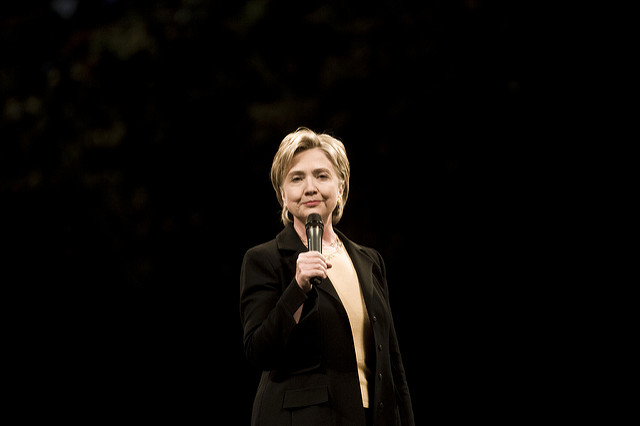Archived
And the Oscar for worst campaign system goes to…
While no one was looking, the Academy of Motion Picture Arts and Sciences, the organization that hosts the Academy Awards, issued a major change in its campaigning policy this month.…
Archived
Hillary Clinton / Joe Crimmings / Flickr
(Hillary Clinton / Joe Crimmings / Flickr)We’ve spent lots of time here at Issue One urging all the presidential candidates to speak more about solutions to money in politics if they want to prove their reformer bona fides. This is more true than ever today, with Center for Public Integrity publishing an in-depth look about Secretary Hillary Clinton’s close ties to a universe of super PACs and secret money groups.
The gist: despite tough talk on overturning Citizens United, Clinton’s allies have seeded at least four closely connected super PACs and an unknown number of nonprofits to collect at least $86 million in contributions to support the Secretary’s presidential bid.
Many of the groups* are run by former staffers and close advisers, stretching the definition of “non-coordination” past what even conservative groups have tried. When asked about the seeming hypocrisy of blasting Republicans for embracing money in politics while taking full advantage of the Citizens United decision, many of those quoted in the piece said they “cannot afford to unilaterally disarm,” and be outspent.
The Clinton campaign is not merely being pragmatic about money — her associates are going far beyond current practice, taking advantage of today’s political Wild West.
Further, Sec. Clinton actually has a strong campaign finance reform plan; her failure to make that clear to the American people is a strategic mistake. The article has new polling to back that up.
Regardless, the article raises important points. Can you really change the current campaign finance system by playing with it, and pushing the boundaries of the law simultaneously? A good citizen-funding system that empowers small donors on a large scale would help alleviate these issues.
With notable exceptions, most of today’s politicians have exploited loopholes and vagaries in the law. From Ted Cruz’s network of super PACs to President Obama’s myriad super PAC fundraisers to Marco Rubio’s reliance on secret money nonprofits, this kind of malfeasance is common. That’s why we need a strong Federal Election Commission to hold rulebreakers accountable.
If Clinton wins in November, campaign finance reformers will be sure to hold her at her word and demand she push for solutions to money in politics. Until then, the Secretary will continue to be questioned on her commitment to this issue.
*Full disclosure: one of the groups described in the CPI story, CREW, has received funding from Issue One in the past. Issue One’s funding of CREW occurred before Clinton’s associates were connected to the group. For more, please see our our grantmaking and disclosure policies.
Issue: Money in Politics
Archived
While no one was looking, the Academy of Motion Picture Arts and Sciences, the organization that hosts the Academy Awards, issued a major change in its campaigning policy this month.…
Archived
Today, the Federal Election Commission (FEC) fined three so-called “dark money” organizations for violating campaign finance laws by failing disclose the source of funds used for political spending and advertisements.…
Archived
Yesterday, the U.S. Supreme Court decided McDonnell v. United States, an important corruption case involving the former Governor of Virginia. It’s easy to get lost in the news coverage, so here’s…

